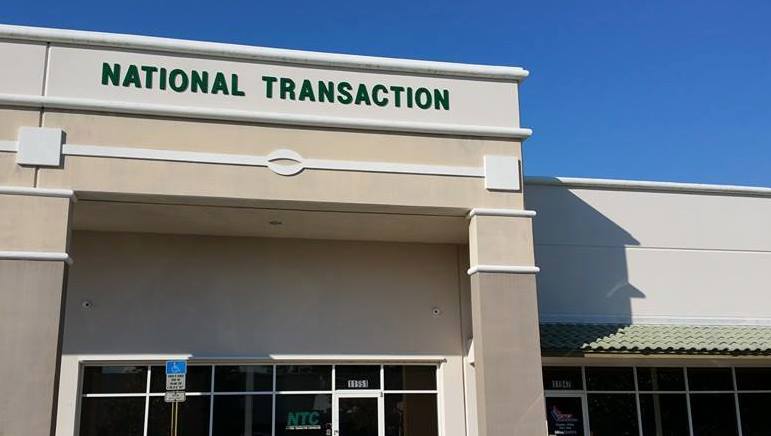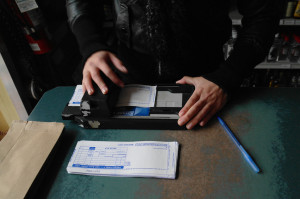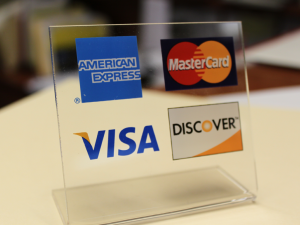
November 17th, 2015 by Elma Jane
Within the payment processing industry, Merchant accounts are categorized according to how they process their transactions.
There are two primary merchant account categories:
Swiped (Card Present) and Keyed (Card-Not-Present).
Swiped or Card-Present Transactions: Are those in which both the card and the cardholder are present at the time the payment is processed, they physically swipe their customers credit card through a terminal or point-of-sale system.
The sub-categories within this group include:
Retail Merchants – Normally conduct their business in an actual storefront or office space. They primarily use counter-top terminals or Point-of-Sale systems. Restaurant Merchants – Requires a special set-up that allows for tips to be added to the final sale amount by settling the transaction with an adjusted price that will include the tip amount.
Wireless / Mobile Merchants – They use wireless terminals or mobile phones to run these transactions in Real-Time. Have the ability to accept credit cards transactions wherever they are located out on the road.
Hotel / Lodging Merchant – Will authorize a customer’s credit card for a certain sale amount.
Card-Present Transactions also include grocery stores, department stores, movie theaters, etc. Card acceptance settings where cardholders use unattended point-of-sale (POS) terminals, such as gas stations, are also defined as card-present transactions.
Keyed-In or Card-Not-Present Transactions: Whenever the transaction is completed and the cardholder (or his or her credit card) is not physically present to hand to the seller.
The sub-categories within this group include:
Mail Order / Telephone Order (MOTO) – The customers card information is gathered via over the phone, fax, email or internet and then manually key-entered into a terminal or payment gateway software. Once the transaction is approved and completed, the product is then shipped to the customer for delivery.
eCommerce / Internet – Conduct ALL of their business over the internet through a web site. So all credit card transactions are processed online via a payment gateway in real-time. The payment gateway is integrated into the web sites shopping cart. The cardholders card is charged instantly.
Travel Merchants is one example of Keyed or Card-Not-Present Transactions.
Start processing credit card payments today whether Swiped or Keyed.
Give us a call now at 888-996-2273 so more details!
Posted in Best Practices for Merchants, e-commerce & m-commerce, Mail Order Telephone Order, Mobile Payments, Mobile Point of Sale, Point of Sale, Smartphone, Travel Agency Agents Tagged with: Card Not Present transactions, card present, card-not-present, card-present transactions, cardholder, credit card, credit card payments, credit card transaction, ecommerce, keyed, Lodging Merchant, mail order, merchant accounts, merchants, mobile merchants, moto, payment gateway, payment processing, point of sale, POS terminals, Restaurant Merchants, Retail Merchants, shopping cart, swiped, telephone order, terminal, transactions, travel merchants
October 10th, 2013 by Elma Jane
There are various payment processing rates that apply to credit and debit card transactions. Visa and MasterCard do not publish their rules and regulations or the payment processing standards required to get the lowest interchange rate. It’s up to credit card processing companies to understand and implement them to their merchants’ benefit. A high downgrade rate may indicate that your processor does not know the standards, or may be reluctant to implement best practices or new rules changes. The application of these rates is based on a variety of factors related to the particular circumstances of the sale and the way the payment is processed, as well as on the type of the card that was used. Typically payments processed in a card-not-present environment (e.g. online or over the phone) are assessed higher processing fees than payments processed in a face-to-face setting. Payments made with regular consumer types of cards are generally processed at lower rates than payments made with rewards, business-to-business or commercial cards. Debit cards are processed at lower interchange rates than credit cards. In order to simplify the pricing for their merchants, the majority of the processing companies have elected to use various tiered pricing models (two-tiered, three-tiered, six-tiered, etc.). There are three general classifications used in the various tiered pricing models:
Qualified Transaction (also referred to as the Swiped Rate) This is the rate charged per each transaction when the card is physically swiped through a credit card terminal. When a transaction is processed in accordance with the rules and standards established in the Payment Processing Agreement, signed by the merchant and the processing bank, and It involves a regular consumer credit card, It is processed at the most favorable rate. This rate is called a “Qualified Rate” and is set in the merchant’s Payment Processing Agreement. The Qualified Rate is set based on the way a merchant will be accepting a majority of their credit cards. For example, for an internet-based merchant, the internet interchange categories will be defined as Qualified, while for a physical retailer only transactions where cards are swiped through a terminal will be Qualified.
Mid-Qualified Transaction This is the rate charged when a transaction is manually keyed-in using AVS – Address Verification Service (card #, expiration date, address, zip code and CVV code all match). When a consumer credit card is keyed into a credit card terminal instead of being swiped or The cardholder uses a rewards card, business-to-business or another special type of card the transaction is charged a discount rate that is less favorable than the Qualified. This rate is called a “Mid-Qualified Rate.”
Non-Qualified Transaction This is the rate charged when manually keying-in a transaction without using AVS – Address Verification Service. When a special kind of credit card is used (like a rewards card or a business card), or a payment is not processed in accordance with the rules established in the Payment Processing Agreement, or It does not comply with some applicable security requirements.
Qualified Transaction Conditions
One electronic authorization request is made per transaction and the transaction/purchase date is equal to the authorization date. The authorization response data must also be included in the transaction settlement. The authorization transaction amount must match the settled (deposit) transaction amount. The card that is used is not a commercial (business) credit card The credit/debit card is present at the time of the transaction, the card’s full magnetic stripe is read by the terminal, and a signature is obtained from the cardholder at the time of the transaction.
The transaction must be authorized and settled under a standard retail industry code.
The transaction must be electronically deposited (batch transmitted) no later than 1 day from transaction/purchase/authorization date.
Mid-Qualified Transaction Conditions
One or more of the Qualified conditions were not met
Non-Qualified Transaction Conditions
One or more of the Qualified conditions were not met, or The card that was used was a commercial card without submitting the additional data or:
The transaction was electronically deposited (batch transmitted) greater than 1 day from the authorization date, or:
The transaction was not electronically authorized, or the authorization response data was not included in the transaction settlement.
Posted in Best Practices for Merchants, Credit card Processing, Electronic Payments, Financial Services, Merchant Services Account Tagged with: account, authorization, authorized, best, business, card, card-not-present, credit, cvv, debit, downgrade, interchange, keying, lowest, MasterCard, merchant, payment, processed, Processing, qualified, rate, rewards, standards, swiped, transaction, visa
September 30th, 2013 by Admin
Credit card processing involves three separate cost components for vendors who choose to accept this type of payment from customers for goods or services. The same cost components apply to debit cards. Only one cost component is negotiable.
The first component is an interchange fee, which is payable to the card holder’s issuing bank. It is a combination of a transaction volume percentage fee and a flat-rate transaction fee. Interchange fees are collectively agreed upon through Visa and MasterCard by a card’s issuing bank and are fixed costs.
Interchange fees take into consideration various information about a card. Types of cards include debit and credit, while categories of cards refer to commercial and reward cards. Processing methods include whether a card is swiped or manually keyed. Swiping a card is usually more economical for vendors.
Secondly, an assessment fee is charged by the card’s brand holder. Brand holders include Visa, MasterCard and Discover. Assessment fees are also fixed costs. Additionally, Visa charges a monthly fee.
The final charge is known as a processing fee. Processing fees vary among processors and is negotiable. Vendors are charged a processing fee, which can cause a difference in cost from one vendor to another. More credit card information: TopTenReviews
Jeremy is a tech blogger at TopTenReviews. He lives outside Salt Lake City, Utah
Posted in Best Practices for Merchants, Credit card Processing, Electronic Payments, Merchant Services Account, Visa MasterCard American Express Tagged with: accept, assessment, cost, credit card processing, debit cards, fees, flat-rate, interchange, keyed, payment, Processing, Rates, swiped, Swiping, transaction, volume


